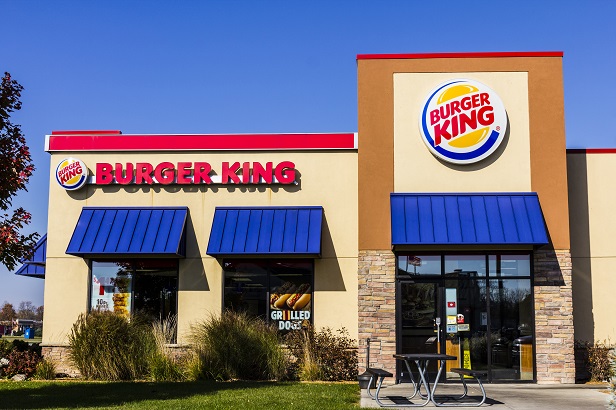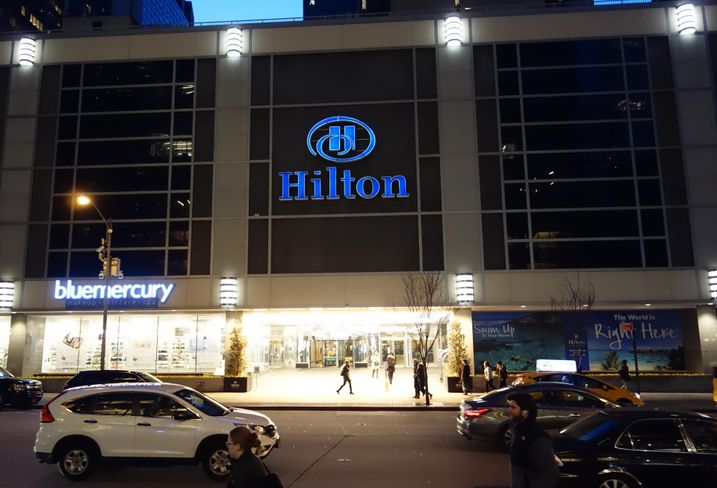As tenants and landlords brace for mass building closings, lease
disputes and funding issues in the midst of the coronavirus pandemic,
they are flocking to their attorneys to discuss protections like force
majeure that may soften the blow.
“I don’t want to overstate this, but the number of conference calls
going on right now with lawyers, investors and landlords is crazy,”
Swivel founder and CEO Scott Harmon said. “It’s creating total havoc …
particularly for office leases.”
The process of figuring out what protections landlords and tenants
have from their insurance coverage and lease clauses during this
unprecedented virus outbreak is a maze, Munsch Hardt attorney Michael
Huddleston said.
Tools like business interruption insurance, civil authority
coverage and force majeure agreements inside leases are being cited as
ways for tenants and landlords to stay afloat as people avoid commercial
real estate, either as tenants or as customers, to limit the virus’s
spread. But do any of these coverages and leases agreements apply in
this situation, and how much help can they provide?
Tim Mossholder Harmon, who operates a nontraditional office
management and leasing platform, said office tenants are already
attempting to break leases in Texas because of the virus. But unless
landlords willingly agree to let tenants go, he expects we will see more
parties land in court over the question of whether there is a right to
break a lease under a force majeure clause or whether there is insurance
in force that covers losses for either landlords or tenants.
“We saw several tenants ask for early termination of a lease … [or]
the ability to move out or cancel a lease before the end of the lease,”
Harmon told Bisnow. “I know of one company that said, ‘we can work from
home, we need to cancel our lease.’”
But asking for a lease to be broken is not necessarily easy, nor is
it always a viable solution in this type of scenario, Harmon said.
Force Majeure: Does The Lease Itself Let A Tenant Out During A Pandemic?
Force majeure clauses drafted as part of active real estate leases
are generating buzz, with tenants looking to see if the lease itself
allows them to walk away from a landlord during a pandemic.
“There is a standard clause in almost every lease called force majeure,” Harmon said.
The clause, often called an act of god or unanticipated event
clause, allows for contractual obligations to be excused if a particular
event makes it difficult for parties to perform their duties.
“Some tenants may argue this is a force majeure, and this is
something where we should be able to get out of our lease for free and
landlords will say it’s not quite that clear. Sadly, when there is a
legal gray area, the courts need to figure it out,” Harmon said.
Force majeure clauses may not be included in every lease, and even
if they are, the clause may not apply in this situation. The coronavirus
likely will be covered under typical force majeure clauses, according
to an advisory put out by Huddleston’s law firm, Munsch Hardt. But while
the firm believes they can protect tenants from being in default of
continuous operation clauses, they don’t expect typical force majeure
clauses will protect tenants against nonpayment of rent.
Legal advisories from other law firms have been less direct.
Andrews Myers said force majeure clauses very rarely mention pandemics,
and coverage will depend on the exact wording of the clauses. It also
advises that most leases do not permit suspensions of rent due to loss
of revenue.
Force majeure clauses differ. Attorneys will have to analyze each
one and determine what triggers it and what its triggering means before
making a final determination on any given lease.
Business Interruption Coverage Will Infrequently Apply, But Litigation Is Expected Anyway
Business interruption insurance generally covers incomes losses
when rents dry up or revenues are lost when a firm becomes unable to
operate from factors outside its control. It’s an important insurance
tool when it comes to paying and collecting rent. Landlords will often
force tenants to keep this type of coverage to ensure they can still
collect rent if a tenant’s business becomes inoperable. At the same
time, landlords generally keep their own business interruption policies
to deal with future rent losses.
The expectation is that renters and owners will claim the
coronavirus should be covered under business interruption clauses that
will protect them financially from lost rent and declining business
profits.
“A lot of attention and focus seems to be going towards business
interruption,” insurance brokerage HUB International Chief Sales Officer
and Executive Vice President James Stuart said.
So, will these policies give landlords and tenants relief?
“Generally speaking the answer is no,” Stuart said.
Huddleston agrees. While there are definitely exceptions that might
make it apply, most of the business interruption clauses he has
reviewed in the past two weeks don’t include coverage for a virus.
Policies require specific language and triggering events for coverage to
kick in.
“All of the policies are going to require physical loss,” he said.
“In other words, you lose business income because of a physical event.
Something blowing up or exploding. There has to be physical damage to
the property.”
While Stuart believes most of the policies with business
interruption coverage will not be triggered under this event, the debate
over it is likely to be heated, with some plaintiff’s attorneys already
hunting for ways to make the coverage apply.
“I have seen some very good pieces by very prominent law firms that
believe there are triggers they can introduce that would trigger
policies to respond to [this as a] business interruption.”
Huddleston said one potential avenue of attack would be looking to
see if insureds have all-risk policies with enough broad language in the
insurance contract to argue the lethal virus is a covered risk. Even
then, it’s an uphill battle, Huddleston said.
“Many of those polices have an all-risk provision with a communicable disease exclusion, some do not,” he said.
Lawyers will also look for civil commotion as a named peril in
insurance contracts to see if the coronavirus can fall under it,
Huddleston said.
The problem, Huddleston said, is a large number of all-risk
insurance policies include a 2006 ISO endorsement form, which basically
excludes coverage for viruses, bacterium and other micro-organisms. Even
still, he expects there will be public policy pushbacks over the
endorsement and attorneys looking for ways to get over this steep
challenge to coverage.
Other areas of possible attack include the application of civil
authority clauses in the event government shutdowns take place (more on
that later), or the argument that a property is in fact damaged due to
ongoing contamination from the virus.
“The argument that policyholders can make is that obviously you
have a situation where you are running a business where people are in
there all the time, and it is a closed environment … clearly every
surface in the place is contaminated,” he said. “From a business
interruption standpoint, how long does it take to clean [the property]
if that physical condition is to be claimed? The problem is that it
cannot ever really be cleaned, so long as the virus is not under control
because everybody who walks in … is a problem.”
Most of the policies Huddleston has reviewed protect insurers from
having to cover viruses. But there needs to be extensive legal review of
each policy, experts say.
“I think it’s going to be [determined] on a case-by-case basis,”
Huddleston said. “Each insured, they are going to have to look at their
policy. Given that most of the policies that we know of have substantial
hurdles … it looks like a situation that is going to leave a lot of
burden on the business owners.”
But the insurance industry and attorneys hope government
intervention will ease the pain on both sides of the landlord-tenant
agreements.
“Part of the political process could provide some relief,”
Huddleston said. “Sometimes it takes the development of a national fund
that businesses can then tap into, that is part public dollars, part
insurance company dollars. There are a lot of different ways that cat
can be skinned.”
Harmon with Swivel also wants the government to ponder landlord and
tenant issues and react proactively on issues like rent abatement.
“A lot of tenants are going to ask for rent abatement for some number of months,” he said.
“The landlords are going to want to know if I offer rent abatements
will a government bailout cover that for me? That is another huge
question.” Harmon said landlords will be more willing to offer rent
abatement if the government gets involved and offers some package that
will counterbalance them.
Civil Authority Clauses And The Dangerous Waiting Game
Civil authority clauses provide insured landlords or tenants with
financial protections on monetary losses when the orders of civil
authorities make it impossible for them to access their commercial
premises. These clauses fall within business interruption clauses in
insurance policies, and the regional shutdowns being issued by governors
and mayors in places like California and New York City could trigger
them. They can be effective and financially beneficial to tenants and
landlords. But the coverage is not common, attorneys say.
And there is a growing concern it could lose its beneficial effect
if an insured tenant or landlord closes before civil authorities order a
government shutdown, Huddleston said. Waiting for the government to
force closure is a dangerous game of damned if you do, damned if you
don’t, Huddleston said.
“The problem is if you voluntarily shut the business down, and you
have one of these policies that provide the coverage for when the civil
authority shuts you down, you are going to potentially lose the coverage
or at least limit the coverage if you shut down before the civil
authority acts,” Huddleston said. “[But] if you wait for the civil
authority to act, then you are potentially incurring liability to
patrons coming in because you know there is a danger … that’s a
liability exposure.”
Huddleston and Harmon both called on governmental entities to act
quickly to remove uncertainty and take the burden of choice away from
business and property owners.
“It’s imperative that our governmental authorities, if they are
going to do a shutdown and think it’s important, then get it done,”
Huddleston said.
Harmon also wants the government to give the office market clarity
on whether an actual shutdown is in place, particularly since some
insurance policies will lack a real triggering event unless this
happens.
“I have talked to a couple of insurance people, and they don’t
think this will apply unless you were a business that was ordered to
shut down,” he said.
None of this is a silver bullet. The existence of civil authority
coverage within some business interruption coverages doesn’t necessarily
mean it applies, because every policy is contingent on contractual
language, triggering clauses and exclusions, Huddleston said.
The big takeaway is that COVID-19 has thrown landlords, tenants and
insurance companies into unfamiliar territory. And to escape this gray
area, all parties have a tough road of legal analysis and negotiation
ahead.
While there are many protections for insurers in their contracts
and many contracts lean in their favor, Stuart said no one can ever be
too confident a dispute will go one way over another, even if a contract
seems airtight and clear.

